Joe Biden on 2016 decision: ‘I regret it every day’
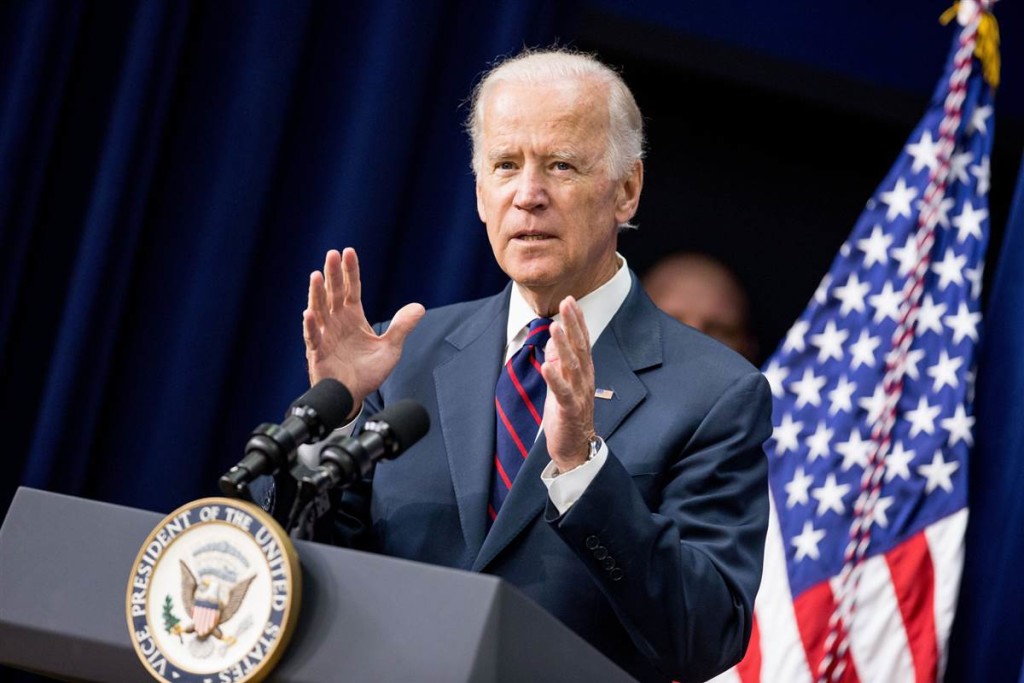
You can take Joe Biden out of the presidential campaign, but you can’t take the campaign out of Joe Biden. Three months after bowing out of the 2016 competition, the vice president has a few second thoughts about his decision. “I regret it every day,” Biden said Wednesday. Still, he said he made the right call for his family and for himself. And he pledged to stay “deeply involved” in the race to replace President Barack Obama. “We’ve got two good candidates,” Biden said, praising Hillary Clinton and Bernie Sanders for engaging in a “robust debate” devoid of personal attacks. He glossed over the third candidate running for the Democratic nomination, Martin O’Malley, whose campaign has struggled to gain traction. The vice president’s musings about the campaign he almost waged came in an interview with WVIT, one of five interviews Biden conducted to promote Obama’s executive actions on gun control. He told the Connecticut television station he was haunted by the thought of the 20 first-graders gunned down in Newtown — “those beautiful little babies in classrooms like dolls, discarded.” Turning to the Republican presidential primary, Biden said it had not been very illuminating so far. He singled out Donald Trump and Ted Cruz for comments they’ve made on the campaign trail. “I promise you, I’ve spoken to three of the presidential potential nominees on the Republican side who tell me, ‘Joe, it’s crazy,’” Biden said. “It’s absolutely crazy.” Biden spent months last year immersed in intensive deliberations with his political advisers and his family about whether to run for president a third time. Weighing heavily on his decision was his 46-year-old son Beau Biden’s death from brain cancer in May. In October, Biden announced that time had run out and that he wouldn’t run. Republished with permission of the Associated Press.
A Ted Cruz, Marco Rubio battle over undecided Iowans intensifies
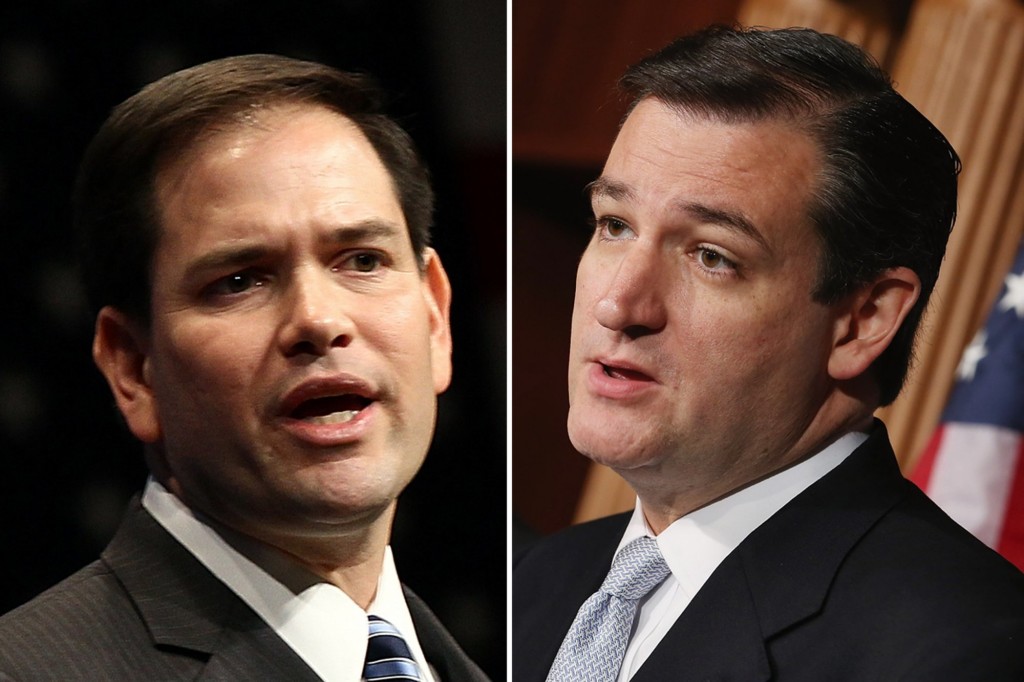
Marco Rubio and Ted Cruz are fighting for the favor of many of the same undecided voters across Iowa, where even some of the most attentive Republicans say they can’t make up their minds less than four weeks before voting begins. That was so among Iowans who gathered before sunrise to hear Rubio at a town-hall-style meeting in Cedar Rapids. The Florida senator impressed the crowd but few left having decided if he would get their vote. “I haven’t settled on one candidate 100 percent,” said Mike Grover, a 65-year-old Cedar Rapids man who is among the thousands of “persuadable voters” still up for grabs. In small towns from Cherokee to Sioux Center, an overwhelming number of would-be voters said both Cruz and Rubio are in contention for their support. Their policies, personalities and presumed ability to defeat the Democratic nominee in the fall are all under close examination. Donald Trump comes up often as well, as do retired neurosurgeon Ben Carson and New Jersey Gov. Chris Christie. At 44 and 45, respectively, Rubio and Cruz are the youngest candidates in the 2016 field and the only Hispanics. “I’ve seen Marco Rubio and Ted Cruz,” Connie Peterson, a retired 74-year-old Republican, said Wednesday at a Rubio event in Marshalltown. “In ways they seem similar, and I can’t make up my mind there.” She added: “It’s going to be a hard decision.” A day earlier, at a Cruz rally along Iowa’s western border, Mondamin real estate agent Lary Clark said he was also torn between the Texas senator, a sharp-tongued combatant in Washington, and the smoother Rubio — both conservatives with tea party roots but divergent paths. “I want somebody who’s going to be able to win the general election,” Clark said. By his calculation, Cruz or Rubio, with their Cuban-American heritage, may be best positioned to capture Latino votes in November. Cruz is working to build on his strong Iowa polling this week with a 28-stop, six day bus tour focused largely on small towns and farm communities. Rubio is making four stops over two days, having spent nine days in the state over the past month, his campaign said. Rubio, who is lagging behind Cruz in the polls, has been more forceful in criticizing Cruz while they’ve crisscrossed Iowa. Rubio is bluntly challenging Cruz’s commitment to national security, while Cruz casts Rubio as an establishment favorite who supports “amnesty” for immigrants in the country illegally. Undecided voters say they need more time to sort through the big pack of contenders. “There’s been so many,” said Iowa corn farmer Jim Nelson of Cherokee. “We’re trying to go through them all. Give them all a chance.” People in early voting states like Iowa and New Hampshire are notoriously late deciders and the fact they have a dozen contenders to choose from is making their decision all the more difficult. A Bloomberg Politics/Des Moines Register poll conducted last month found that only 33 percent of likely Iowa caucus-goers had made up their minds, with two-thirds saying they could still be persuaded by any candidate. That’s in line with voters nationwide, according to a Quinnipiac University poll, which found in late December that nearly 6 in 10 Republicans could change their mind before casting their primary vote. Cruz is banking on a win Feb. 1 caucus to generate momentum to sustain him well beyond the following contest in New Hampshire, where he’s not expected to do as well. His team is more optimistic about his chances in South Carolina and the bulk of Super Tuesday states voting on March 1, several of which are in the South where his core support among evangelical conservatives is strong. Rubio’s path to the nomination is less clear. He’s barely in the top-tier of many early state polls, often trailing both Cruz and Trump. The Florida senator’s team is betting on a series of strong showings in the early states — if not wins — that would allow him to stay alive and inherit support from other candidates as they drop out. Karl Palmberg, a 39-year-old farmer from Larchwood, Iowa, came with his wife and two young children to see Cruz on Wednesday morning at a diner in Rock Rapids. But Palmberg said Cruz is his second choice behind Rubio, citing issues like global warming, immigration and the flat tax that are making him lean toward Rubio because he’s more to the center on them. Becky Waters and her husband came from nearby Ogden to hear Cruz speak at a Christian bookstore in Boone on Monday. While her husband was on board for Cruz, Becky Waters said she came into the event torn between him and Rubio. But after hearing Cruz, her mind was made up. “That was a powerful speech,” she said. “He’s the guy.” But Nelson, the corn grower, wasn’t so sure after a Cruz event in Cherokee. “I’ll sleep on it,” he said. Republished with permission of the Associated Press.
Police say Donald Trump issues 20K tickets for 1,400-seat Vermont venue
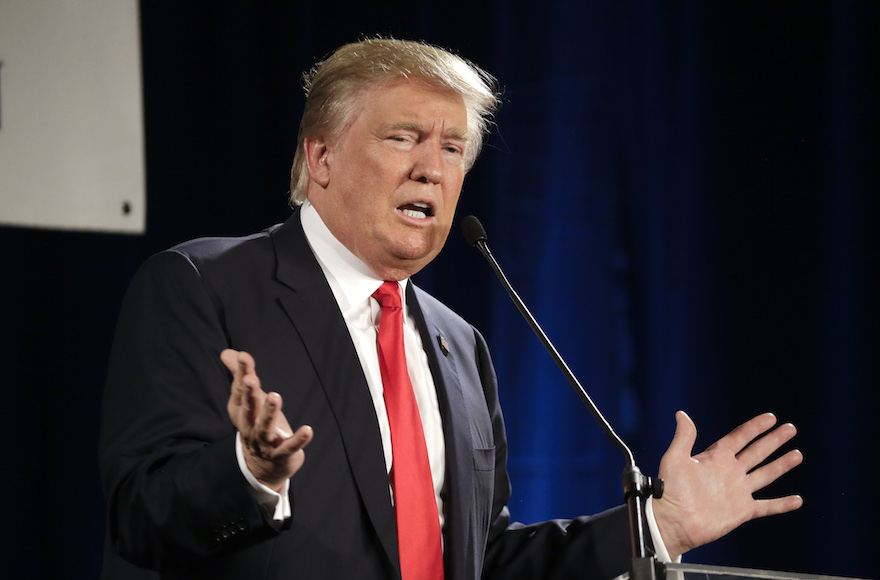
Republican presidential candidate Donald Trump‘s campaign has issued 20,000 tickets for an event at a Burlington, Vermont, venue that has only 1,400 seats, city police said Wednesday. Police Chief Brandon del Pozo acknowledged that those numbers, plus expected protesters, could be a public safety issue. If a rock group sold that many tickets to the downtown Flynn Theater, del Pozo told the Burlington Free Press, the city would cancel the event. He said that for now, Trump would be allowed to speak as scheduled because that would give people the chance to listen to a major presidential candidate. Burlington is a liberal bastion inside a solidly Democratic state and the hometown of Democratic presidential candidate Bernie Sanders — a self-described democratic socialist. In fact, the Flynn Theater is across the street from City Hall — where Sanders served as mayor. A Trump campaign spokeswoman did not immediately respond to the report. Police say that anyone arriving for the Trump event once the Flynn has been filled will be turned away. In a statement issued after Trump’s visit to Vermont became known, Sanders said he welcomed him to Vermont. The Vermont Republican Party has said it had no role in Trump’s visit to the state, but they welcome his thoughts. The Vermont Democratic Party is asking its members to make charitable contributions to organizations that represent some of their core Democratic values. Republished with permission of the Associated Press.
Ted Cruz’s birth in Canada unlikely to cloud run for president
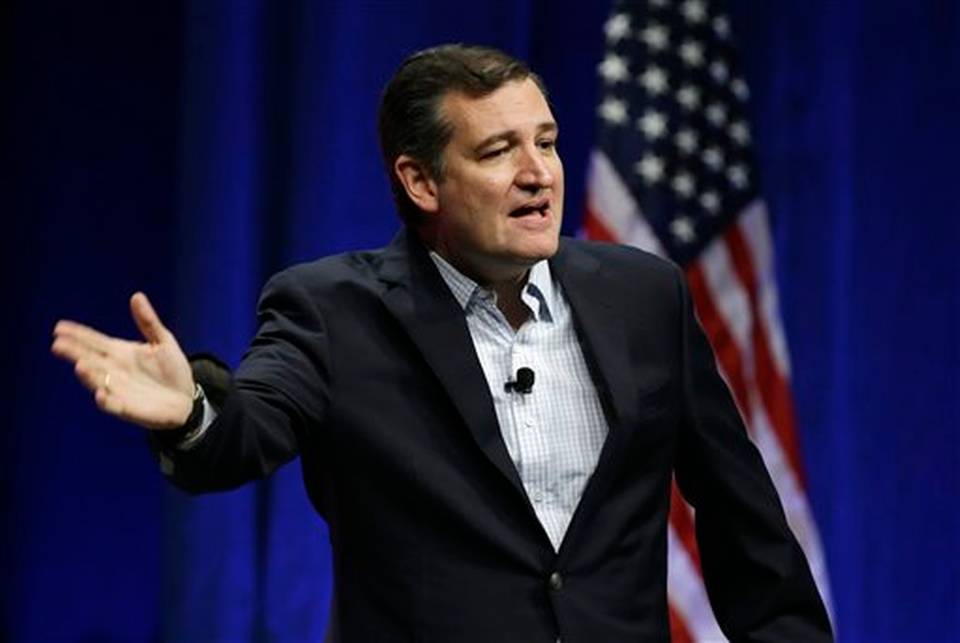
It seems like only yesterday that skeptics of Barack Obama‘s birth in Hawaii rushed to the Supreme Court to try to block the son of an American mother and Kenyan father from taking office as president. The justices turned away those challenges as fast as they arrived at the courthouse door, much as lower courts did. Seven years later, Republican presidential candidate Ted Cruz is dealing with pointed remarks from rival Donald Trump that Cruz’s birth in Canada to an American mother and Cuban father raises doubt about his eligibility to be president and could dog his campaign for the White House. Trump had also famously questioned whether Obama was really born in Hawaii. Some answers to questions about the constitutional requirements to be president, and Cruz’s situation: Q: What does the Constitution say? A: Article II sets out just three qualifications: The president must be at least 35 years old, a resident of the United States for 14 years and “a natural born citizen.” This last phrase has periodically spawned questions about presidential candidates who were born, or rumored to have been born, outside the United States. Q: Where was Cruz born? A: He was born in Calgary, Alberta, Canada, in 1970, and has released his birth certificate to prove it. His parents were then working in the oil business. His mother, Eleanor, is from Delaware, while his father, Rafael, is a Cuban who became a U.S. citizen in 2005. Q: Does that make him a citizen? A: Yes, Cruz is a U.S. citizen. He also was a Canadian citizen until he renounced that in 2014. Q: Shouldn’t that be the end of the story? A: The Constitution’s phrase, “natural born citizen” isn’t used elsewhere in the document or otherwise explained. It suggests to some people that only people born in the United States qualify as natural born, though many scholars reject that reading. It was speculation that Obama was born outside the country, even though his mother was American, that fueled the so-called birther movement. Q: So what does “natural born citizen” mean? A: It’s hard to answer definitively because the issue has never been resolved by U.S. courts or by the political process. The most common explanation is that someone who is a U.S. citizen at birth — with no need to go through the process of becoming a naturalized citizen — is a natural born citizen. That’s the case made last year by a pair of former top Justice Department officials, Republican Paul Clement and Democrat Neal Katyal, in the online Harvard Law Review Forum. Under a law dating from the first Congress, which included men who drafted the Constitution, Cruz is a natural born citizen, regardless of where he was born, because his mother is an American, Clement and Katyal wrote. That understanding of the constitutional phrase is consistent with the framers’ intent “to prevent someone who did not have a lifetime attachment to the United States from becoming president,” said University of San Diego law professor Michael Ramsey. Q: Then why is there any uncertainty about the phrase’s meaning? A: On Wednesday, Trump called on Cruz to seek a “declaratory judgment” from a federal court to determine his eligibility once and for all. But because the Supreme Court has never weighed in on the question and is unlikely to, “it’s the kind of question that the courts are almost allergic to and will stay away from if they can,” said Temple University law professor Peter Spiro. He said the issue falls into the category of political questions that courts prefer to let Congress and the president answer. The consensus among legal elites makes court intervention even less likely, he said. One practical problem for challengers is the difficulty of showing they have been harmed, without which they have no right to be in court in the first place. Q: Have the political branches addressed this issue? A: When questions arose in 2008 about Republican nominee John McCain‘s eligibility to serve because he was born in the Panama Canal Zone, the Senate unanimously passed a resolution stating that McCain was a natural born citizen. Among the resolution’s sponsors were then-Sens. Hillary Clinton and Barack Obama. Republished with permission of the Associated Press.
Alabama Republicans vote to repeal Obamacare, send bill to President’s desk
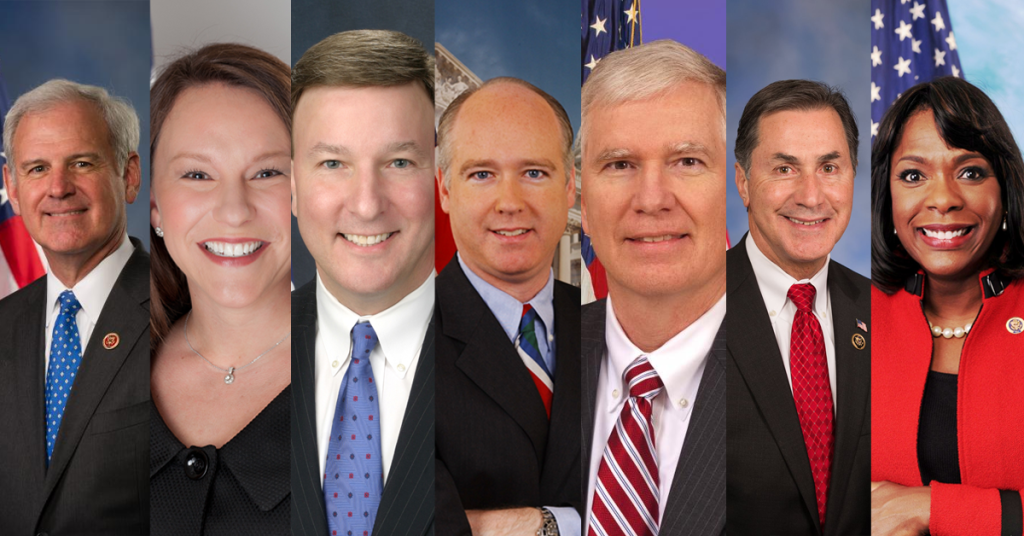
The Republican-led U.S. House of Representatives sent legislation to President Barack Obama Wednesday after voting to repeal his legacy health law in efforts to fulfill a 2014 promise to voters. H.R. 3762, the Restoring Americans’ Healthcare Freedom Reconciliation Act, which will almost certainly be vetoed, passed the House 240-181, with the support of all six Republicans of the Alabama Delegation. The bill would effectively demolish the President’s signature Obamacare law by repealing the individual and employer mandates, repealing the medical device and “Cadillac” tax. It also eliminates federal funding for Planned Parenthood, and reduces the deficit by over $500 billion. Here’s what the Alabama delegation had to say of their votes: U.S. Rep. Bradley Byrne (AL-01): The President can choose to stand with the American people or he can stand against the American people. If he chooses to veto the bill, then the American people will have seen a clear choice between two very different Americas: an America where the government knows best or an America where the hardworking people are empowered. Let’s make the President decide. Let’s hold him accountable. Let’s do the work of our constituents. And let’s pass this bill on behalf of every American who lost their health care plan or saw their health costs increase. Let’s do this for them. U.S. Rep. Martha Roby (AL-02): Yes, President Obama can stop our Obamacare repeal reconciliation package from becoming law this year. But, he cannot stop the growing chorus of Americans unhappy with the higher costs and broken promises of his healthcare law. Their voices are being heard in Congress, where, finally, a majority in both the House and Senate are ready to end this failed experiment and deliver better, more workable healthcare policy. U.S. Rep. Mike Rogers (AL-03): After voting to repeal Obamacare numerous times in the House without the legislation going anywhere in the Senate, I am thrilled that today this bill has passed both chambers and will finally go to President Obama’s desk. H.R. 3762 not only repeals Obamacare, it defunds Planned Parenthood and reduces Federal deficits by an estimated $78.1 billion by 2025. The American people have been very clear in their priorities that this flawed health care law just does not work for them, that Planned Parenthood must not be a wholesale provider of abortions and government spending must be kept in check. Now, President Obama will have the opportunity to make a choice, stand with the priorities of Americans or stand against them by vetoing the repeal bill. U.S. Rep. Robert Aderholt (AL-04): This is the first time since Obamacare was forced on the American people in 2010 that a bill which actually repeals Obamacare will land on the President’s desk. For the first time, the President will have to sign the bill or veto it – no hiding behind comments about Congress. In these six years it has become clear Obamacare is a failed law. How do we know it has failed? Just look to the millions of families across our country that are struggling each month to pay higher premiums with huge out of pocket expenses for less coverage. It is not enough to try to play defense against the President’s failed policies; instead we will roll up our sleeves to craft tough legislation and take the fight to the White House. We must take the fight to the President — as only Nick Saban can win playing defense all the time. U.S. Rep. Mo Brooks (AL-05) U.S. Rep. Gary Palmer (AL-06): The House has voted to repeal Obamacare before, but because of opposition by Senate Democrats, it has never gone further. Now, through the reconciliation process, both bodies voted to repeal major components of Obamacare and send it to President Obama’s desk. I have no illusions about whether the President will sign the bill. But by putting this in front of him, Congress has proven it has the will and the ability to repeal Obamacare, and put that choice before the American people when it comes time to elect a new President. U.S. Rep. Terri Sewell (AL-07): The Restoring Americans’ Healthcare Freedom Reconciliation Act is House Republicans’ 62nd attempt to undermine or repeal the Affordable Care Act (ACA). We cannot afford to waste time on a bill that is destined for a veto, particularly when there are much more pressing issues facing our great nation. This bill is designed to take health insurance from 22 million uninsured Americans. It would cut the subsidies provided to low and middle income Americans living with diabetes and other diseases. Among its most dangerous provisions is a measure to repeal the Medicaid expansion. Alabama has yet to expand its Medicaid program, and my constituents are among those who have been hardest hit by state lawmakers’ inactions.
Former George W. Bush campaign bus driver says Mike Huckabee infringing on copyright
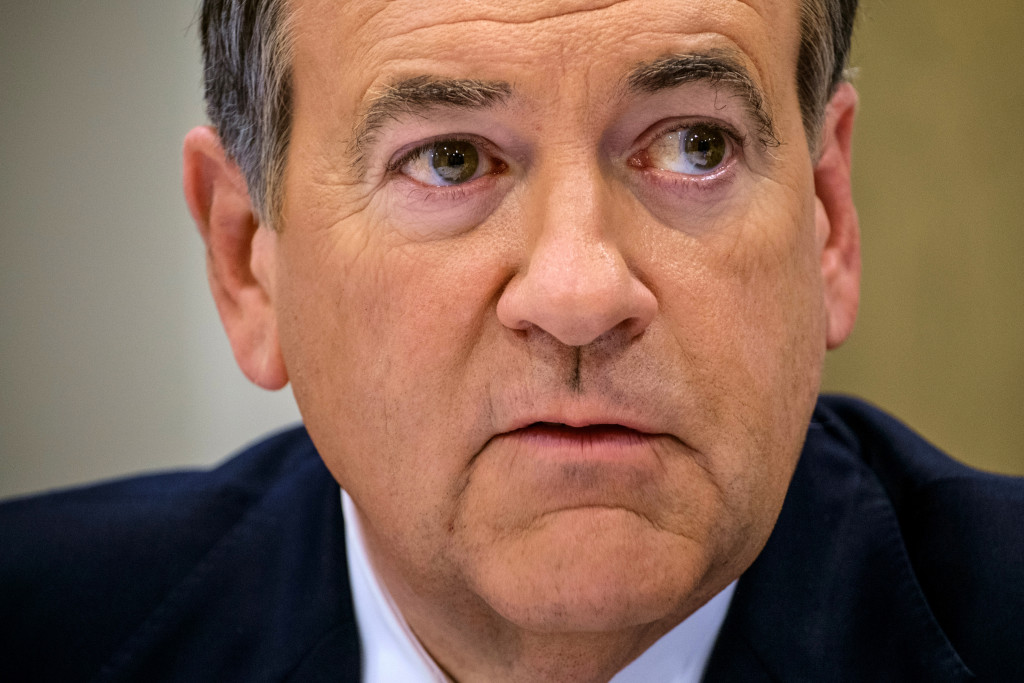
Former campaign bus driver for multiple Republican candidates, Montgomery, Alabama, native Johnny Williams took to Facebook recently to call out presidential candidate and former Arkansas Gov. Mike Huckabee over what Williams terms infringement on his copyrighted bus name “Asphalt One.” “I have just been made aware that one of the long shot Presidential Candidates, Mike Huckabee, is using my Copyrighted name, ‘Asphalt One’ on his bus, and in his fundraising letters,” wrote Williams, who is evidently not a fan of Huckabee’s. “I want the people of Iowa, to know that this is not me,” Williams wrote. “That name is part of my Legacy, and I don’t want my winning record spoiled, because we worked with winners for the last 27 years. I am going to ask him nicely, if I can get past his handlers, to stop using it without my permission.” Williams has driven for candidates such as both Presidents Bush, Pat Robertson, and several others with his Johnny Williams Bus Charters company, which he operated for 30 years. Huckabee was using the phrase on social media as recently as Tuesday, as seen in the Tweet below: #AsphaltOne – @JHoganGidley workin’ hard, @chipsaltsman takin’ a break, & @GovMikeHuckabee chats w/ @janethuckabee. pic.twitter.com/sreKgHbg6a — Gov. Mike Huckabee (@GovMikeHuckabee) January 5, 2016 Williams provided the following text from the Lyndon B. Johnson Presidential Library to bolster his claim of longstanding use of the name, and provide a little history of campaign bus titles. “Whatever other type of military and non-military transportation used by the President is typically dubbed in the same manner, usually unofficially as it is normally a temporary use. In 1992, President George H.W. Bush campaigned in the former presidential train dubbed ‘Rail One.’ In 2004, President George W. Bush‘s campaign bus was dubbed ‘Asphalt One’ (which was the name of his campaign bus when he ran for Governor of Texas in 1998). In 2012, President Barack H. Obama campaigned in the newly acquired Presidential Bus dubbed ‘Ground Force One.’ Also, ‘Executive One’ has been used on a variety of transportation types most frequently on non-military aircraft.” Williams’ connection to the Asphalt One brand is also documented in a 1998 article in the Wall Street Journal. It begins by describing Bush rolling into a small town: “The bus called ‘Asphalt One’ rolls into this tiny east Texas town, distilling Gov. George W. Bush’s campaign message into two words emblazoned on its flank: ‘Opportunity’ and ‘Responsibility.’”
Daniel Sutter: Making good decisions about risk

Can Americans make good decisions about risks to life and limb? Many policy experts don’t think so. Although there are challenges, I think that people make better decisions than they sometimes get credit for. The mirage of perfect safety provides a huge obstacle to good decisions. We value safety, so zero risk seems like a reasonable goal. But zero risk, when not impossible, almost always entails enormous costs. To see why, consider driving. Auto accidents claim over 35,000 victims annually, so it would be great to reduce this toll. We can do so by driving slower, but we then spend more time traveling. We drive faster than 5 mph because we want to get places in a reasonable time. Given the cost, we do not choose zero risk. An excessive focus on one risk also leads us to ignore costs or unavoidable tradeoffs. A person who is extremely afraid of flying might choose to drive instead. They reduce the risk of dying in a plane crash to zero, but face a greater risk of dying overall. People also estimate risks inaccurately. Misperceptions, which some observers view as evidence of poor decisions, are a consequence of the cost of information. Reading the Census of Fatal Occupational Injuries or the Centers for Disease Control’s mortality reports takes time and is boring. Most people rely instead on news reports. The mass media, however, covers stories people find interesting. Consequently Americans tend to think that more murders than suicides occur each year, and overestimate the chances of dying in plane crashes, tornadoes, or terrorist attacks. Undoubtedly people make mistakes concerning risky choices. But government bureaucrats find it nearly impossible to unambiguously identify and correct mistakes, because of peoples’ different values and tolerances for risk. Personally I see no value and only risk in riding motorcycles and rock climbing. Yet I know that other people accept some risk of injury or death to enjoy these activities. The dread of the person who fears flying may lead her to choose a riskier but less terrifying mode of transportation. These decisions are not wrong. Government also makes poor risk decisions. This really shouldn’t surprise us, since voters, politicians and bureaucrats all make the types of mistakes discussed above. But the environment also encourages poor decisions. One factor is bureaucracies addressing narrowly defined risks. Thus the FDA handles foods and medicines, the EPA covers environmental risks, and so on. This allows the assembling of great expertise about risks, but also encourages bureaucratic tunnel vision. Here’s an example I’ve observed while researching the societal impacts of severe weather. Researchers or bureaucrats might remark how Americans’ preference to spend $5,000 on flat-screen TVs and not in-home tornado shelters is a problem. Holding one risk as paramount might strike us as ridiculous, but the attitude results from the narrowness of professional expertise combined with exclusive organizational focus on one risk. The symbolic and disjointed nature of legislation also leads to trade offs being ignored. When a threat emerges, politicians want to be seen taking action to protect the public. So they pass a law and announce that we are now safe. The costs emerge only with implementation of the law, and then regulatory costs are typically hidden in new higher prices. Consequently we never really debate whether the improvement in safety is worth the cost. Estimates of costs per life saved for different safety measures by economists help us make better decisions. A regulation estimated to cost $30 million and save 10 lives would have a cost per life saved of $3 million. Costs per life saved are comparable across different regulations. This identifies regulations with really high costs per life saved as bad investments. Some people believe that it is wrong to talk about how much we should spend to save lives. They think that we should save lives regardless of the cost. And yet this is perhaps the greatest error we face when thinking about risk. Every potential life-and-death decision involves a value of life; our only choice is whether we evaluate the trade off. Ignoring trade offs produces inconsistent and costly decisions. Daniel Sutter is the Charles G. Koch Professor of Economics with the Manuel H. Johnson Center for Political Economy at Troy University and host of Econversations on TrojanVision.
The man who drives campaigns: Bus tour owner Johnny Williams retires after almost 30 years
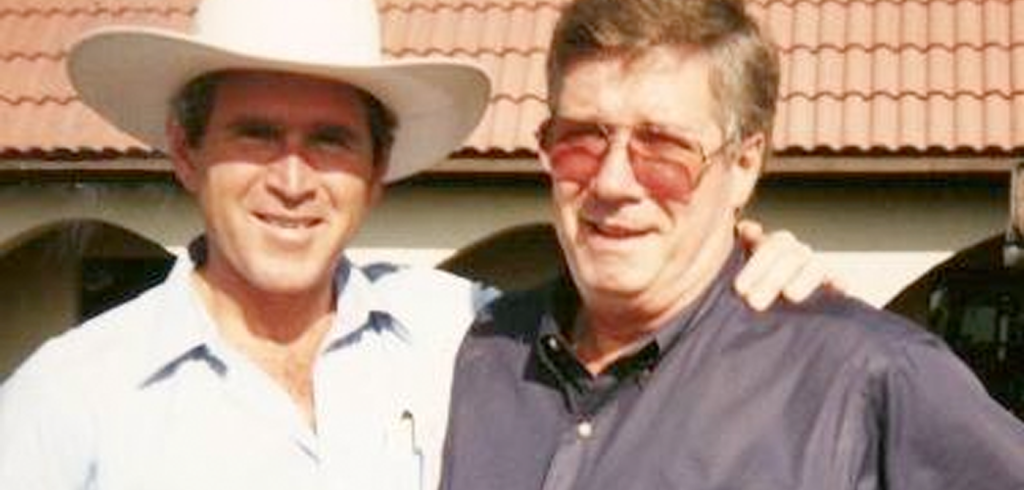
Although many political candidates are easy to recognize, most of the people who keep their campaigns running aren’t. But without them, the political season couldn’t run. Johnny Williams fits the description to a T. For almost 30 years, Williams has been one of the literal driving forces behind the Republican Party. As the owner and operator of Johnny Williams Bus Charters, he made his living doing bus tours for candidates and issues campaigns. He’s driven candidates for almost every level of government, and could fill entire books with his stories. But he won’t. If you ask him too many questions about the campaigns he’s driven, he’ll laugh and tell you it’s kind of like Vegas: “What happens on the bus, stays on the bus.” Before Williams drove his first bus tour, he cut his teeth driving 18-wheelers and race cars. In the mid-’80s, he and his wife bought a motor home. “One of my friends was running for office, and I let her use my bus. It helped her out a little bit, but she didn’t win,” he says. But his next campaign did. “We got all excited about that and decided we liked that,” says Williams. “We got a better bus and took it on the road.” The next year, Williams drove for Pat Robertson’s campaign during the primaries. After Robertson dropped out of the race, George H. W. Bush’s campaign asked Williams to drive. “He won, and the rest of it’s history,” he says. “We just went from one campaign to the other.” As Williams soon found out, driving presidential candidates came with its own set of challenges. “The biggest thing was getting used to the Secret Service,” he says. “When you get into the general election, they take over the schedule and the buses and everything like that.” After 9/11, security tightened further. Civilians were no longer allowed to drive presidential candidates – a Secret Service agent took over. “We agreed until we found out that they weren’t so good at driving buses,” he says. “We went back to driving. In fact, I guess I’m the only civilian to ever drive a president. That worked out pretty good.” Since that first election, Williams’ fleet has grown to 10 buses. Johnny Williams Bus Service became the go-to bus tour service for Republican political candidates. Through it all, Williams credited his wife as his secret weapon. “She really took care of everybody when we were on the bus,” he says. “She could tell you what they drank, what they ate, and she really knew more about them than I did. They would send me home before they’d let her go.” Once their kids started having kids of their own, his wife decided to stay home and raise them. After his almost 30 years in politics, Williams announced his retirement late this past year. “I had a lot of health issues come up, and I got to evaluating the situation,” he says. “Back in ’94, I had two stents put in my heart. While I was in the hospital then, I had four different campaigns calling me, wanting me to get the bus and go campaign for them. Fob James even sent one of his aides to visit me in the hospital to see if I was going to come work for him!” “I said look guys, I’m up here in the hospital and I think I might die,” he continues. “You’re talking about bus tours, and I ain’t worried about bus tours. I’m just trying to get well!” He did get well, but in 2015, he had surgery to put in three more stents. He also had two minor strokes, and surgery to implant a pacemaker to make sure he had no more strokes. “I figured I was wearing out and there was no reason to push myself any further,” he says. “It’s been a good run, a good time, and I’ve made a good living out of it.” Although he’ll miss the work, he’s looking forward to getting a good night’s sleep during the upcoming election season. “When you have three or four buses on the road at one time, you worry about something happening,” he says. “When a bus breaks down on a political campaign, it’s on the headlines the next day. When I go to bed at night during an election season, I won’t lay there with the fear of the phone ringing.” But every time you ask him what it was like, the answer is the same. “I had a lot of fun,” he says. “I’ve met a lot of good people. Like I’ve said before, I’ve met some heroes, and I’ve met some zeroes. I enjoyed every minute of it. I’m gonna miss it.” Clair McLafferty is a freelance writer.
Roy Moore rankles critics with order halting same-sex marriage licenses
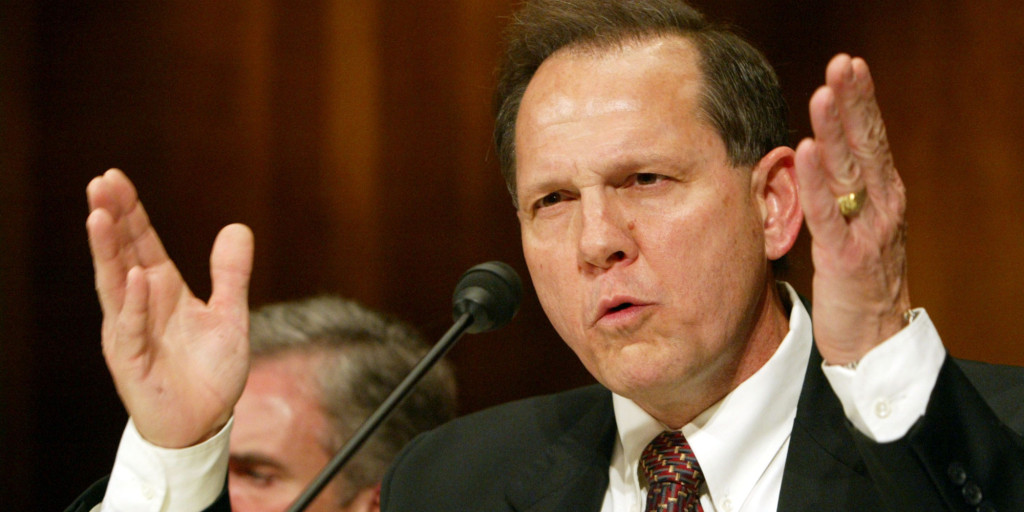
Alabama Chief Justice Roy Moore has come under fire from marriage equality groups in the wake of his recent judicial order requiring state probate judges to stop issuing marriage licenses to same-sex couples. Moore issued the order citing discrepancies among Alabama jurisdictions. The current state of affairs – wherein some counties are issuing the licenses while others refuse to – creates a disparity that “affects the administration of justice in this state,” requiring court intervention. On Wednesday the Human Rights Campaign, a leading national advocate for LGBT rights and interests, heaped scorn on Moore for his “shameful” judicial opinion. “Yet again Chief Justice Roy Moore is flagrantly defying the rule of law, and empowering those who wish to stand between same-sex couples and their constitutional right to marry the person they love,” said HRC Legal Director Sarah Warbelow. “Regardless of what Roy Moore says, marriage equality is the law of the land,” said Warbelow, referring to last year’s landmark U.S. Supreme Court ruling in Obergefell v. Hodges. “His obstructionist tactics tarnish the reputation of the great state of Alabama, and we urge all of the state’s probate judges to issue licenses to same-sex couples, as is their duty under the law. Moore’s personal opinions are not at issue here. As a judge, he has an obligation to follow the law.”
Reuters poll: Donald Trump maintains lead over GOP field
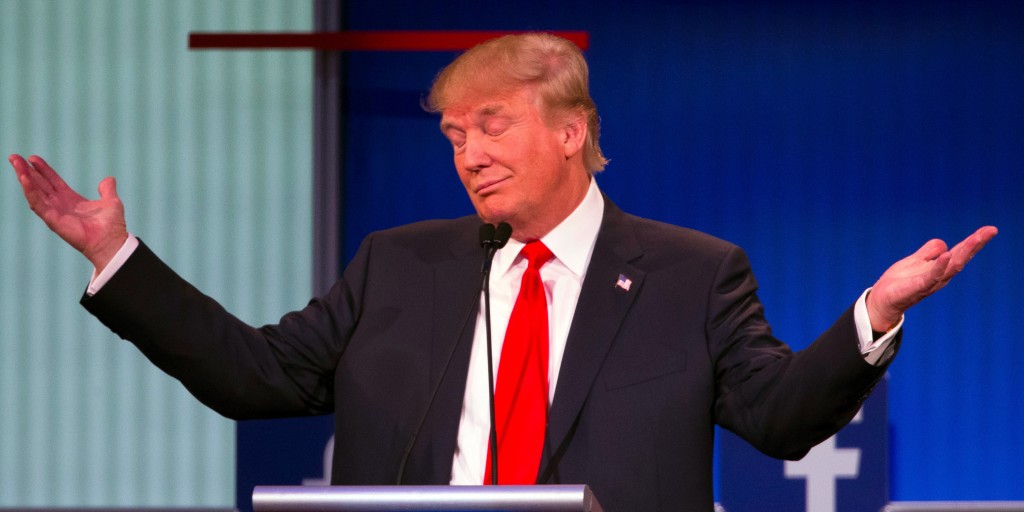
A new Reuters poll shows Donald Trump is maintaining a hefty lead among registered Republicans. Among registered Republicans, 42.2 percent said they supported the New York businessman, compared with 15 percent for Sen. Ted Cruz and 11.2 percent for Ben Carson. Sen. Marco Rubio and former Gov. Jeb Bush rounded out the Top 5 candidates, with 8.5 percent of the respondents said they supported Rubio and 7.7 percent supported Bush. The Reuters/Ipsos poll collects data entirely using online surveys. The data is drawn from online surveys using sampling data developed with several outside experts. Trump has been at the top of national polls for months, and he leads the pack in New Hampshire and South Carolina. In Iowa, polling averages show that Trump trails Cruz.
Jac VerSteeg: Keep gun owners from killing themselves

In America guns now kill as many people as cars. The facts behind this trend offer an opportunity for cooperation between gun rights factions and gun safety factions. The headline – guns kill as many as cars – at first looks like a slam dunk condemnation of rising gun violence. That’s not the case. The underlying cause is not a spike in gun homicides. Rather, it is a steady reduction in the number of motor vehicle deaths. (By the way, in Florida vehicular fatalities still outnumber gun deaths.) There’s another wrinkle in the national stats. Of the 30,000 people who die from gun violence every year, about 20,000 are suicides. Therein lies the opportunity for agreement between pro-gun and anti-gun factions. Both should want to reduce suicide rates by providing resources for mental health. Gun rights advocates have conceded – at least, some have – that guns should be kept out of the hands of the mentally ill. When there is an attack such as the murders committed at the Planned Parenthood clinic in Colorado Springs, gun rights forces are eager to blame the shooter’s mental illness rather than the firearms used to kill, in this case, three people including a police officer. But for every high-profile case like that, there are thousands of gun deaths that barely are noticed except by the family and friends of the victims. I’m talking, of course, about those 20,000 suicides by gun every year. Suicide is an extreme symptom of mental illness. One reason suicide is so little noted is that it is clouded in stigma and shame. News media traditionally have not reported on lone suicides out of consideration for the surviving friends and family members. Suicide has been seen as a private matter. But not always. As the Sun Sentinel reported, 56-year-old Clive A. Muir shot himself to death on New Year’s Day. But not before he also shot two assistant managers, one fatally, who worked at the Boston Market in Tamarac where Muir had worked before being fired last fall. It is impossible to know whether mental health intervention could have prevented Muir’s attacks and suicide. The same is true of every specific suicide. But it is a reasonable assumption that intervention by mental health professionals can and does prevent some suicides. Further, the same intervention that helps individuals cope with the loss of their jobs or other life crises reasonably can be assumed to prevent, in some cases, the kind of murder-suicide tragedies that Muir inflicted on himself and his victims. I know from personal experience – having lost close family members to murder-suicide involving gun violence – that mental health intervention will not work in every case. Finding out what kind of intervention does work to prevent suicide should be a major subject of research. But it isn’t. Why? In part because Congress since 1996 has blocked funding for the Centers for Disease Control and Prevention that specifically would have paid for research into the effects of gun violence on Americans’ health – including the role that guns play in suicide. The Washington Post has reported that the CDC has balked at getting involved in such research even after President Barack Obama issued an executive order authorizing some gun-violence research after the 2012 Sandy Hook Elementary School massacre. The CDC – and other sources of research funding – simply are afraid of retaliation from Congress and gun rights groups if they pay for any studies that could be interpreted as favoring gun control. That fear is preventing robust research that could pinpoint the best way for clinical psychologists and other mental health professionals to, in layman’s terms, talk people out of committing suicide. The most obvious irony is that preventing research into suicide prevention results in lethal harm to gun owners themselves. When about 20,000 people kill themselves with guns every year, roughly 20,000 gun owners are proving that guns often are more dangerous to their owners than they are to any outside threats. Gun rights advocates, as well as gun control advocates, should be able to agree that improving access to mental health services is a goal that would prevent gun deaths. Further, they should be able to agree that research to improve the mental health services actually delivered would prevent gun deaths. Not agreeing is, well, suicide. • • • Jac Wilder VerSteeg is a columnist for The South Florida Sun Sentinel, former deputy editorial page editor for The Palm Beach Post and former editor of Context Florida. For more state and national commentary visit Context Florida.
Diane Roberts: Hey, football fans! How’s Donald Trump gonna do?
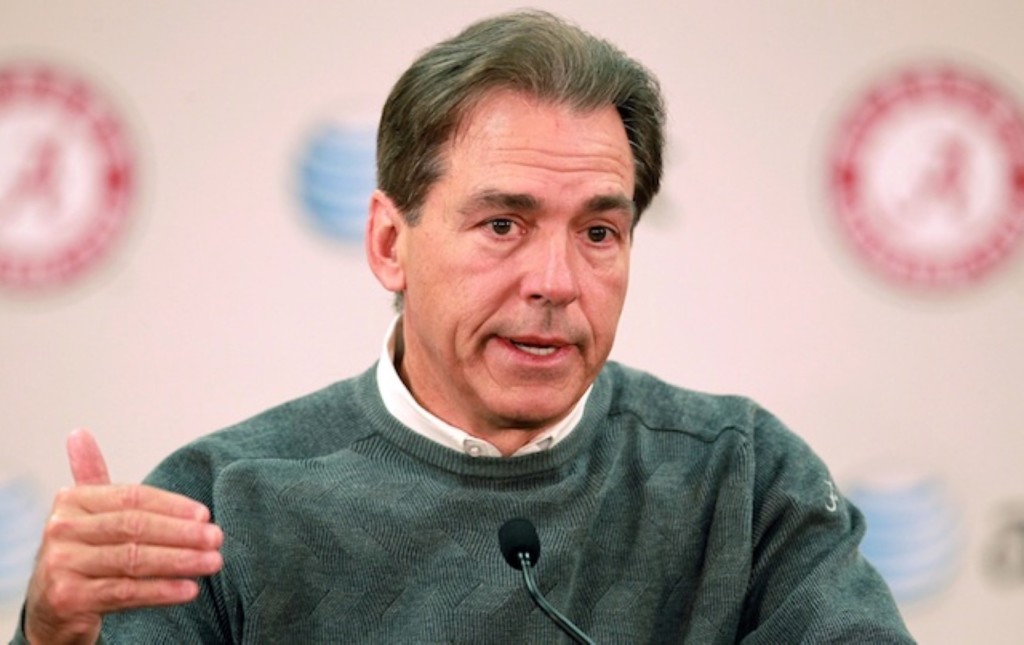
Greeting sportsfans, I’m Brent Toast of ESPN, along with former Heisman winner Johnny Twitt. Welcome to the most important event of 2016, the college football national championship! Who will prevail? Will it be the Clemson University Tigers, led by evangelical whackjob Dabo Swinney, or the Crimson Tide of Alabama, coached by gazillionaire and part-time Bond villain Nick Saban? But first, let’s look at the second-most important event of 2016, the race for the White House. Who’s playing with his hand in the dirt? Who’s got his ears pinned back? And — this is crucial — who’s No. 1 in pandering? Johnny? Thanks, Brent. Right now I’d say you’ve got to give the edge to Carly Fiorina. Her 40 time ain’t that hot — at 22 hours, it’s right up there with the Matanuska Glacier — but there’s nobody out there more shameless. Check this out: Minutes before Stanford took the field against an Iowa team already demoralized by the sheer number of Republican hopefuls crisscrossing the state, Fiorina sent this tweet: “Love my alma mater, but rooting for a Hawkeyes win today. #Rose Bowl.” Whoa, Johnny! That’s impressively, you might even say, stupidly, brazen. You got it, Brent. Between Christian McCaffrey’s running and the Stanford band’s halftime show featuring cow-tipping and references to FarmersOnly.com, Iowa collapsed like wet wheat. At least Fiorina tried to make a play. All Jeb Bush could come up with was free coozies at the pregame pep rally. Coozies, Johnny? That’s right, Brent. Coozies, black and gold, with “Hawkeyes for Jeb” on ‘em. That’s pretty tragic right there, Johnny. Not even “Jeb for the Hawkeyes.” No. No. What about Marco Rubio? Could be a momentum issue: the Michigan Wolverines delivered an old-fashioned fanny-whupping to Marco Rubio’s Gators down in the Citrus Bowl. That had to hurt. Bad year all round for Florida, Johnny. Houston owned FSU in the Peach and USF got slapped harder than a redheaded stepchild by Western Kentucky. Plus, Rick Scott is their governor. Ugly, Brent. Ugly. What’s happening with the Democrats, football-wise? Well, Brent, no one’s actually seen the Democrats, since they held their debates on game nights, and Hillary Clinton has failed to tell us who she’s supporting in Monday night’s championship game. I have to think it’s Clemson: the state of Alabama has pretty much outlawed Democrats. South Carolina has an early primary, too. What about Donald Trump? Well, that’s the big question. We reached out to his campaign but all they’d say is that he roots for the Wharton School of Business. The Wharton doesn’t have its own football team, Johnny. Must be some confusion with the U Penn Quakers. Au contraire, Brent. Trump specifically stated that the Quakers are “huge losers” and that he would kill ISIS the way they taught him to at Wharton. Well, OK, then. In related news, we now know who bankrolled the skywriting over the Rose Bowl, you know, the “Trump is Disgusting”? A property developer from Tuscaloosa, Alabama. Name’s Stan Pate. Democrat? No, a Republican. Scary. Developer versus developer. It’s like the Civil War. Whatever. Trump’s getting some football love from former Georgia Bulldog great Herschel Walker and Patriot QB Tom Brady … Hot wife. Can’t argue with you there, my friend, but those guys have been hit in the head many, many times. Hard. Got to remember that, Johnny. Stay with us — we’ll be right back with Sen. Bernie Sanders, our guest picker on GameDay. Can he beat Rick Ross and Katy Perry? • • • Diane Roberts teaches at Florida State University. Her latest book is “Tribal: College Football and the Secret Heart of America.” For more state and national commentary visit Context Florida.

